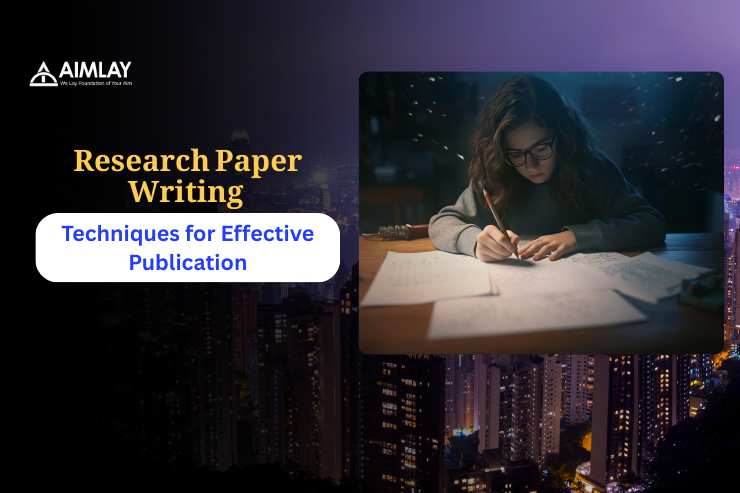PhD Admissions Guide 2025: Process, Requirements & Tips
- aimlay01
- Jun 19, 2025
- 6 min read
The pursuit of the degree of PhD (Doctor of Philosophy) is an academic accomplishment which gives you the chance to conduct extensive research in a specific area of research. The year 2025 promises an exciting new set of possibilities for potential doctoral students since universities around the world are beginning to accept PhD admissions. In this article we'll look at the main elements of PhD admissions in 2025. It will provide insight into the process of applying as well as eligibility requirements and suggestions for an effective application.

1. Overview of PhD Admission Process in 2025
PhD programs are typically offered by universities and academic institutions around the world, in a variety of disciplines ranging from the sciences and engineering to the humanities, social sciences, business, and arts. The application process for a PhD program in 2025 will follow similar procedures to previous years, but candidates should stay updated with any new requirements or changes.
1.1 Key Steps in the PhD Admission Process
Researching Programs and Institutions: The first step is to research potential PhD programs and institutions that align with your academic interests and career goals. Each university offers different programs with varying structures, research opportunities, and faculty expertise.
Checking Eligibility Requirements: Ensure that you meet the eligibility requirements set by the institution. These often include having a relevant Master’s degree or an equivalent qualification, a strong academic record, and specific research interests.
Preparing Application Materials: Prepare all required documents such as your curriculum vitae (CV), academic transcripts, recommendation letters, a research proposal, and a personal statement. The research proposal is one of the most critical parts of the application, as it demonstrates your research focus and readiness for doctoral study.
Submitting Application: Most universities have an online portal for submitting applications. Pay attention to the application deadlines, which can vary by institution, but typically fall in the fall or winter for programs starting in the following year.
Interviews and Selection: If shortlisted, you may be invited for an interview, either in-person or virtually, where you will discuss your research proposal, academic background, and career aspirations. In some cases, there may also be an entrance exam.
Final Admission Decision: After the interview or selection process, universities will notify you of their decision, which could result in either an acceptance, conditional acceptance, or rejection.
Financial Aid and Scholarships: Once admitted, you may need to apply for financial aid, research funding, or scholarships, which can significantly impact the cost of your PhD journey.
1.2 Timeline for PhD Admission 2025
Application Period: Typically begins in late 2024 to early 2025, with deadlines often falling between January and March 2025, though some programs accept applications on a rolling basis.
Interviews: Interviews may take place from March to June 2025, depending on the program.
Admission Results: Results are typically announced by mid-summer 2025.
Program Start: PhD programs usually begin in the fall (August or September) of 2025, though some universities may offer spring or winter intake options.
2. Eligibility Criteria
The eligibility criteria for PhD programs in 2025 are generally consistent across many institutions, but there may be variations depending on the program and country. Key factors to consider include:
2.1 Academic Qualifications
Master’s Degree: Most PhD programs require applicants to have completed a relevant Master’s degree or its equivalent. In some cases, a Bachelor’s degree with exceptional academic performance can suffice, especially in fields like engineering and science.
Transcripts and Grades: Academic transcripts from previous degrees will be scrutinized, and most institutions require a strong academic record (usually a minimum of 3.0–3.5 GPA on a 4.0 scale) to be eligible.
2.2 Research Experience
Previous Research Work: Demonstrating prior research experience, whether through your Master’s thesis, research assistant positions, or publications, can significantly strengthen your application.
Research Interests: You must have clear research interests that align with the program and faculty at the institution. A well-articulated research proposal is often a determining factor in the admission process.
2.3 Language Proficiency
English Language Proficiency: For international students applying to programs in English-speaking countries, a high score in English proficiency tests such as TOEFL, IELTS, or PTE is usually required.
Other Language Requirements: Some universities in non-English-speaking countries may require proficiency in the local language, especially if the PhD program is taught in that language.
2.4 Letters of Recommendation
Strong References: Most PhD programs require 2–3 letters of recommendation from professors or professionals who can speak to your academic capabilities, research potential, and character. These references are crucial in the selection process.
2.5 Entrance Exams (Optional in Some Cases)
Standardized Tests: Some institutions or specific programs may require standardized tests like the GRE (Graduate Record Examination) or subject-specific exams to assess the applicant’s general academic aptitude or subject-specific knowledge.
3. Components of a PhD Application
A complete PhD application typically includes several key components:
3.1 Research Proposal
The research proposal is one of the most critical documents in your application. It outlines your research question, methodology, and the significance of your research in the broader academic context. The proposal should:
Clearly state the research problem and objectives.
Provide a review of existing literature to demonstrate your understanding of the field.
Outline the research methods and techniques you plan to use.
Discuss the potential impact and contributions of your research.
Be concise, well-structured, and show your ability to think critically about your topic.
3.2 Personal Statement
The personal statement provides insight into your motivations for pursuing a PhD, your academic and career goals, and why you are interested in a particular program or faculty. It should:
Explain your academic background and research interests.
Highlight any relevant work experience or projects that have prepared you for doctoral study.
Demonstrate your commitment to pursuing a career in academia or research.
Convey your enthusiasm for the program and how it aligns with your future aspirations.
3.3 Curriculum Vitae (CV)
Your CV should provide a comprehensive overview of your academic qualifications, research experience, publications, teaching experience (if any), and any relevant professional experience. Highlight any notable achievements, awards, or presentations related to your research field.
3.4 Transcripts and Academic Records
You will need to submit official transcripts from all post-secondary institutions you have attended. These documents should reflect your academic performance and any completed degrees.
3.5 Letters of Recommendation
As mentioned earlier, 2–3 letters of recommendation are usually required. Choose referees who know you well and can provide detailed, supportive letters that highlight your strengths as a researcher and scholar.
3.6 Test Scores (if applicable)
If required by the program, submit official test scores, such as the GRE or TOEFL/IELTS, as per the application guidelines.
4. Funding Your PhD
One of the major concerns for prospective PhD students is funding. Doctoral programs can be expensive, especially for international students. However, many universities offer various funding options to support students throughout their PhD journey.
4.1 Scholarships and Fellowships
University Scholarships: Many universities offer merit-based scholarships, research fellowships, or teaching assistantships to support PhD students. These may cover tuition fees, provide a stipend, and offer research support.
Government Scholarships: Numerous government-funded scholarships are available for both domestic and international students. Examples include the Rhodes Scholarship, Fulbright Program, and Commonwealth Scholarship.
External Fellowships: Many private organizations, research institutions, and foundations offer fellowships for doctoral research. It’s essential to research these opportunities early and apply for them.
4.2 Teaching and Research Assistantships
Teaching Assistantships (TAs): Many PhD programs offer teaching assistantships, where students assist in undergraduate courses, grading assignments, and even teaching classes. In return, TAs often receive a stipend and tuition remission.
Research Assistantships (RAs): Research assistantships allow students to work closely with faculty on research projects. These positions typically come with financial support and the chance to contribute to cutting-edge research.
4.3 Part-Time Work
While not always encouraged, some PhD students choose to work part-time in positions that complement their research interests or help support themselves financially. It is important to maintain a balance, as PhD programs are demanding and require a significant commitment to research.
5. Preparing for Success in a PhD Program
Once you’ve successfully secured admission to a PhD program, it’s time to prepare for the journey ahead. A PhD is a marathon, not a sprint, and requires dedication, resilience, and strong time management skills. Some tips for succeeding in a PhD program include:
Build Relationships with Faculty: Having a supportive advisor and building relationships with faculty members can provide invaluable guidance and mentorship throughout your research.
Stay Organized: The demands of a PhD program can be overwhelming. Organize your time efficiently, set achievable goals, and make steady progress on your research.
Seek Collaboration: Collaborate with peers and colleagues to enrich your research. Collaborations often lead to new ideas and broaden your academic network.
Take Care of Your Well-being: Pursuing a PhD can be stressful, so it’s important to prioritize mental and physical health. Make sure to take breaks and find ways to relax and recharge.
Conclusion
PhD admission 2025 offers an exciting opportunity to embark on an academic journey that could shape your future career and contribute to the advancement of knowledge in your field. By carefully researching programs, preparing a strong application, and securing financial support, you can position yourself for success. The PhD journey is demanding but rewarding, providing the chance to conduct groundbreaking research and become an expert in your chosen field. If you’re ready to dive deep into academic inquiry, the year 2025 offers numerous possibilities for your doctoral ambitions.








Comments